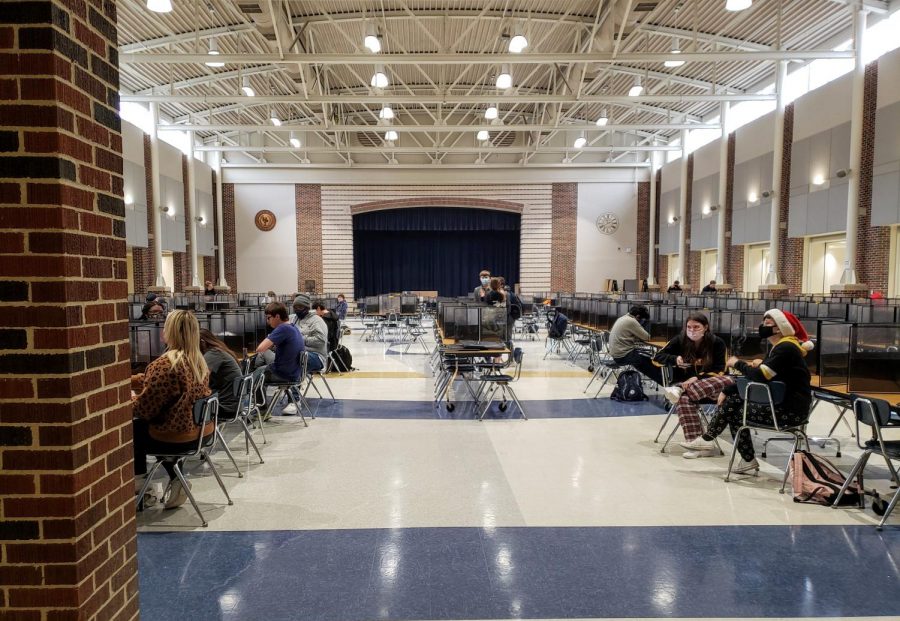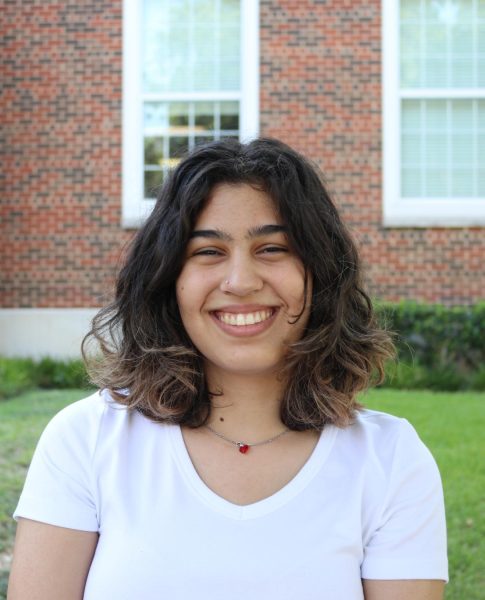Before winter break, all students returned to the building to take exams – some for the first time all year.
The school required students to show up to in-person exams during their designated cohort hours. This included remote learners, some of whom had been isolated at home for months out of a desire to exposing themselves to coronavirus.
The decision to host in-person exams was out of fear of widespread cheating. When students take tests or quizzes online, teachers require their cameras to be turned on and pointing at their face and desk. While this feeling of being watched may discourage cheating, if a person is truly determined, there are countless ways to cheat on assessments.
This influx of cheating poses an even greater problem when you think about final exams. Because of their difficulty and importance, more students might feel compelled to cheat.
“The kids that were in person [throughout the semester] were able to be monitored, and we knew that the work they were turning in was their work,” Principal Jeremy Gilbert said. “But with the kids that were participating online, there had been some concerns with regard to compromised academic integrity of the online testing.”
While in-person exams may solve some problems like the possibility of cheating, it was a solution that jeopardized the health of students, faculty and our community.
Looking closer at the exam schedule, one would think that there would only be around half of the student body in the building at a time (excluding seniors who are exempt). This is because students took exams in their cohorts – last names A-L and M-Z.
“The advantages of the schedule is that we are still honoring the cohort system, we still are able to have half of our students in class ,so we will be able to distance as best as possible without having 100 percent of the students here, and we will have a level playing field in terms of exam scores,” Gilbert said.
It’s great that everyone wasn’t in the building at one time, but it’s still not enough to guarantee students’ safety. First, the cohort system isn’t nearly that convenient. Comparisons of A and B cohort class sizes can vary heavily depending on the last names of students. While theoretically, the cohort system should divide classes into two even groups, when one happens to be larger than the other by chance, it puts students and staff at risk.
Additionally, students who needed to utilize an extra time accommodation remained on campus outside of their cohort sometimes. While this accommodation was necessary for those students who needed it, the guidelines for these students should have prioritized safety and reducing exposure to any other cohorts.
Though students had to be in person for exams, the school offered special accommodations for students with health concerns.
“We sent out the form for those families that had any type of underlying health concerns, and we [worked] with them to schedule individual exams on campus or on another district location to ensure they would feel comfortable and safe while taking their exams in person,” Gilbert said.
This was a nice accommodation for these students, but it still doesn’t do enough to guarantee safety for others.
All this said, the administration has been put under a lot of pressure this year to navigate the uncharted territory of an international epidemic. There is a tug-of-war between people who believe that the virus isn’t a threat and people who believe there should be more protocols put in place to prevent the spread, and the school has to please both. There is no great solution to this problem, but I still don’t think that in-person exams are the way to go.
“This whole idea of in-person exams was something that we put a lot of time and thought effort into,” Gilbert said. “It’s not something that we took lightly.”
However, at the same time, I also don’t think online exams are a good decision. As I mentioned before, it is very easy to cheat on, and there are also problems such as the inconsistency of the internet and technology.
A solution to this problem would be a project-based assessment. I think that each subject should be able to easily find a way for students to present their knowledge of the topic that doesn’t involve the standard method of testing. The creative aspect of the project prevents cheating because each project would have to be unique, and the project could be asynchronous so the students wouldn’t have to come to school when there is a dangerously high concentration of people.
While this can’t be put into place this semester, if we are still struggling with the coronavirus by the time of year-end finals, I think that the administration should consider imposing mandatory project-based assessments.




